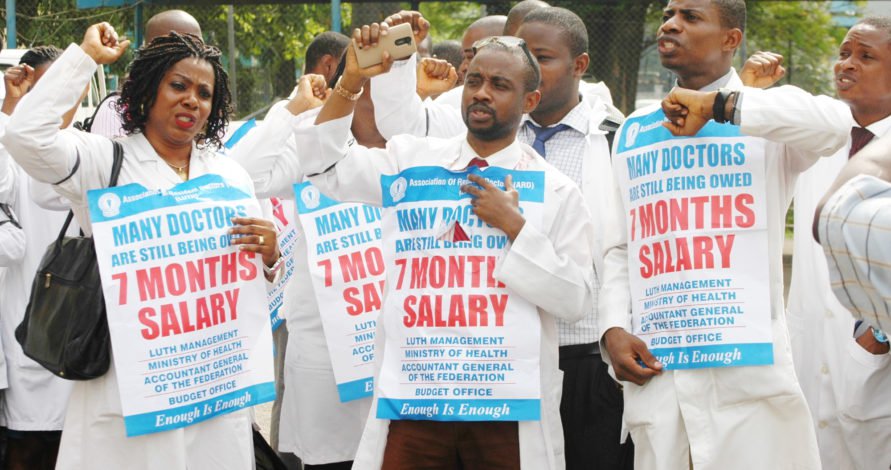ABUJA, Nigeria — The standoff between the Federal Ministry of Health and the National Association of Resident Doctors, NARD, took a new turn on Friday, August 4, 2023, when the resident doctors strongly condemned the government’s decision to enforce a ‘no work, no pay’ policy against them.
The reaction followed a circular issued by the Federal Ministry of Health, signed by the Director of Hospital Services, Dr. Andrew Noah, directing hospitals to implement the contentious policy.
The circular also mandated hospitals to maintain an attendance register for all resident doctors willing to work during the strike.
The President of NARD, Dr. Emeka Orji, expressed his discontent with the situation in a conversation with Vanguard, characterizing the action by the ministry as “unfortunate.”
The circular read in part: “I am directed to inform you that the Federal Ministry of Health has instituted the policy of ‘No work, No Pay’ against the striking resident doctors in line with circular Ref. No.58598/8.1/II/182 dated June 22, 2016.”
This directive follows various failed conciliatory meetings between the government and NARD, aimed at getting the doctors to call off their indefinite strike that commenced on July 26.
Dr. Orji responded vehemently to the ministry’s circular, saying: “It is unfortunate that the Ministry of Health has been shifting blame and keep saying they don’t have a minister yet, which is why they cannot handle such issues.
They now have the will and the capacity of implementing imputative measures. I can tell you that this letter has aggravated things, and nobody should blame NARD for any escalation that might likely happen from next week.”
NARD’s strike revolves around several key demands, including the implementation of the one-for-one replacement policy for healthcare workers, discontinuation of the downgrading of membership certificates issued by the West African Postgraduate Medical and Surgical Colleges, immediate payment of all salary arrears, a new hazard allowance, and the domestication of the Medical Residency Training Act.
The ‘no work, no pay’ policy amplifies an already tense situation, as it brings a new dimension to the ongoing dispute between the government and the striking resident doctors. The government’s decision to enforce this policy puts additional pressure on the doctors, who are already dissatisfied with the current state of negotiations.
The ongoing strike has disrupted medical services nationwide, affecting healthcare delivery to millions of Nigerians.
As both parties remain entrenched in their positions, with neither side appearing willing to make significant concessions, the prospect of a quick resolution seems to be slipping further away.
With the NARD president’s recent statement, it’s clear that the situation is more strained than ever.
The government’s decision to enforce the ‘no work, no pay’ policy appears to have further galvanized the striking doctors, setting the stage for a protracted and potentially more contentious battle ahead.
As the strike enters a new phase, the impact on the healthcare system—and on the well-being of the Nigerian people—continues to grow.







